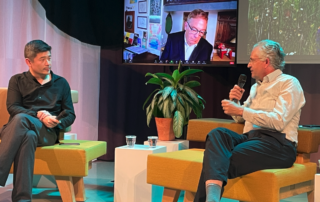7-Day-Sabbaticals, the ecological turn in design, and other news
The ecological turn is about reconnection with living systems, and each other, through the unique places where we live. For design, signals of this transformation take many forms - as I learned last month in Shanghai.

